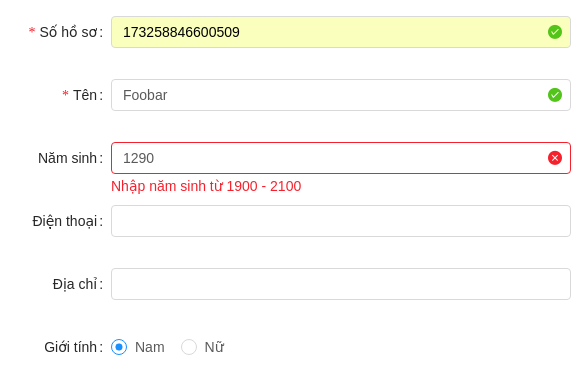Just wanted to say: this thread was really interesting to read through! Great thoughts on all sides. I like the change to the validation result type and agree it feels better as a variant than an object.
Regarding the original question - I tend to agree that “default” validations often don’t actually meet my specific needs for whatever reason. Aside from “required” they tend to have kind of specific requirements depending on the exact use case. That said, I love the idea of the validate function taking a list of validators, or somehow making validations able to be composed. That way I can define my own “defaults” for things like required, min, max, whatever and reuse them throughout my app by combining them as needed. You could even provide some example code for common validations - that way beginners could borrow those implementations without too much effort, but you’re not stuck maintaining them as a part of the package itself, responding to requests for different use cases, etc.
Thanks for putting the thought into all this. I’m really enjoying working with re-formality!


 not so obvious
not so obvious This snippet is internal implementation, there won’t be any changes in your app:
This snippet is internal implementation, there won’t be any changes in your app:
 /
/  ?
?